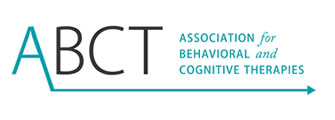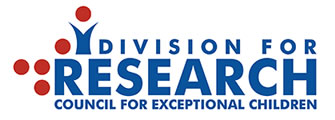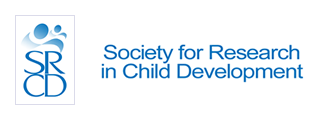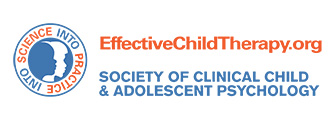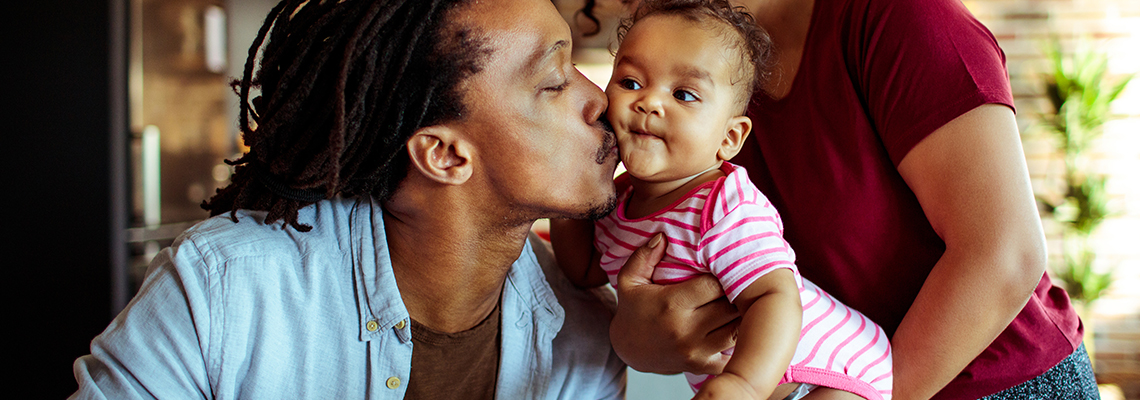
What is Infant Mental Health?
Infant Mental Health can also be called Early Childhood and Infant Mental Health (ECIMH) and generally refers to a child’s social and emotional development from ages birth to three. This development happens inside a child’s brain with over 1 million new neural connection forming every second. Human brains are built from the ground up, just like a house, and need a strong foundation for lifelong success. This foundation is built through interactions—with you, other important people in your baby’s life, and with the environment. This includes emotional well-being (how they feel about themselves), interpersonal abilities (how they get along with others), problem-solving skills (such as listening, paying attention, and experimenting with solutions), and cognitive abilities (skills used to think, reason, and remember). All of baby’s experiences change their brain’s foundation and can help or hurt its growth.
Serve and Return Interactions Build Babies’ Brains
Brain development occurs through the process of “serve and return” interactions, or communication going back and forth between baby and another person. Babies love looking at faces, but can get overstimulated and may look away, yawn, or hiccup to show you they want to stop. However, they will often return to “play” after a brief break. beginning of a conversation. It may feel silly at first, but most babies love it when you coo and talk back to them. Babies can recognize their parents’ voices from the moment they’re born and talking to them is the best way you can continue to build that wonderfully strong foundation and support infant mental health and brain development.
Baby’s Environment Matters
Your baby takes it all in whether you’re looking, smiling, or laughing. Their brains are like sponges that never turn off, even when they’re asleep or it seems like they aren’t paying attention. Help baby feel comfortable in their environment by narrating or “sportscasting.” If you don’t know what to say, just describe what is going on around you (like a sports announcer on the radio). For example, “You love your bath, let’s take the warm washcloth and sprinkle water over your shoulders. Doesn’t that feel good?”
Your baby also takes it all in if you’re angry or yelling at them or others at home. Infants’ brains are particularly sensitive to anger, fear, and aggression during this critical time period of laying the foundation. Babies can be impacted by arguments happening in their homes even if they don’t seem to be paying attention during the fighting. Any early trauma can negatively impact their sensitive and growing brains, which may affect mental and physical health as well as later behavior.
Baby Well-Being Is Contingent on Caregiver Well-Being
It can be exhausting, frustrating, and downright maddening to attempt to soothe a fussy baby and it’s even harder if you’re feeling stressed. While it’s important to tend to crying babies, it is also important to balance this with meeting your own needs. Feeling stressed and overwhelmed is normal, and a sign that you might benefit from reaching out for help from a partner, family, or friends. If you become very stressed, take a break—never shake a baby. Put baby down in a safe place (such as a crib or playpen) if you are alone and feel worn out. It might be helpful to allow yourself to cry for a minute, call a friend for support, or lie down and take ten deep breaths.
You Can’t Spoil a Baby
Some people feel that picking up a crying baby will spoil them, but the opposite is true: holding babies, and even skin-to-skin contact, is important for parent-child bonding. Babies can’t soothe themselves yet. When you soothe your baby, she or he then learns to soothe themselves. Babies require physical comfort, just as they need to be fed and cleaned. Picking up and holding a baby when they cry meets their need for safety and security. Babies who are not responded to consistently may become clingy, needy, insecure, or falsely independent as they learn they can’t count on their needs being met.
Consistent Responsiveness Builds Babies’ Brains
Every baby is different and not all babies like to be held all the time. That means it’s best to read and follow your baby’s cues. When baby’s needs are consistently met, they learn that their caregivers are reliable and will keep them safe. This consistency builds confidence, security, and independence. Babies who are cared for and receive appropriate responses will learn to soothe and settle themselves as they gradually gain the ability to regulate their own emotions, an underpinning of infant mental health!
Positive, Responsive Interactions with Baby Are Essential for ECIMH
Babies and young children experience a period of important and rapid brain development in the first three years of life. This period lays the foundation fwr a child’s well-being. Parents and other adult caregivers play a vital role in this development because, as previously noted, all of baby’s experiences change their brain’s foundation and can help or hurt its growth. Responsive interactions with babies increase their social and emotional abilities, including communication and cognitive competence. This beginning of social-emotional well-being may offer babies the best opportunity for lifelong mental health.
Infant and Early Childhood Mental Health Resources:
Center on the Developing Child
Proper citation link for this blog post:MacLaughlin, S. S. and Briggs, R. D. (June 14, 2020). Foundations for Infant Mental Health. https://infoaboutkids.org/blog/foundations-for-infant-mental-health

